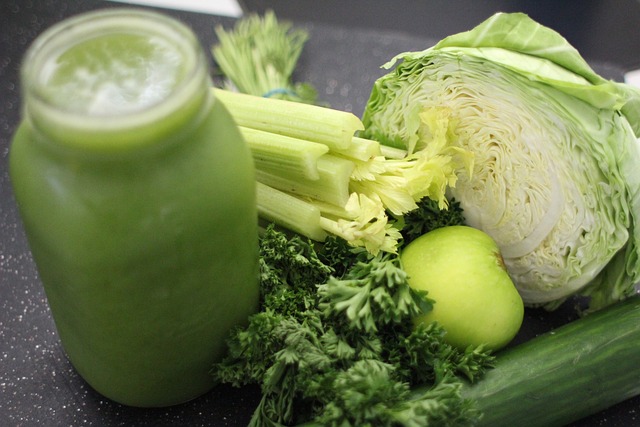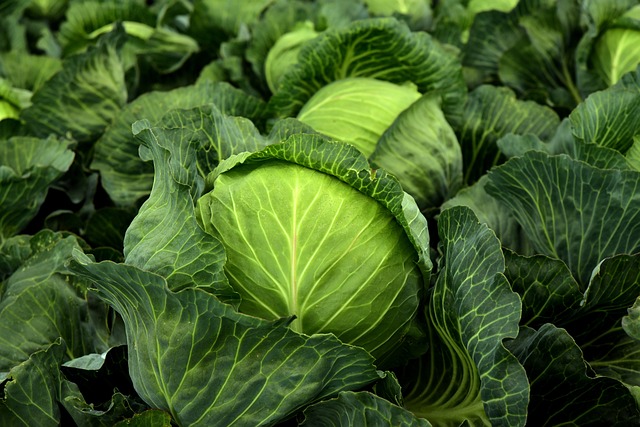Did you know that a tiny nutrient called vitamin K plays a colossal role in maintaining your overall health? In the realm of nutrition, vitamin K often takes a backseat to its more famous counterparts like vitamin C or D. However, its significance in supporting various bodily functions is nothing short of remarkable. Join us on a journey through the health benefits of vitamin K and discover why this often-overlooked vitamin is essential for your well-being.

Health Benefits of Vitamin K
Bone Health
One of the lesser-known but crucial roles of vitamin K is its contribution to bone health. It works synergistically with calcium and vitamin D to ensure proper bone mineralization, reducing the risk of fractures and osteoporosis. Are you giving your bones the support they need?
Blood Clotting
Vitamin K’s association with blood clotting is perhaps its most well-known function. It plays a pivotal role in the synthesis of proteins that regulate blood clotting, preventing excessive bleeding. How does vitamin K strike the delicate balance between preventing bleeding and promoting clotting?
Heart Health
Recent research suggests that vitamin K may be linked to cardiovascular health. It helps prevent the calcification of arteries, reducing the risk of heart disease. Are you incorporating enough vitamin K into your diet for a healthy heart?

Cognitive Function
Emerging studies indicate a potential connection between vitamin K and cognitive function. Adequate levels of vitamin K may support brain health and reduce the risk of neurodegenerative diseases. How is vitamin K influencing the health of your mind?
Anti-Inflammatory Properties
Vitamin K possesses anti-inflammatory properties that contribute to overall immune system function. It may help alleviate inflammation in the body, potentially reducing the risk of chronic diseases. How can vitamin K be your ally in the fight against inflammation?
Vitamin K is an essential nutrient that plays a crucial role in various physiological functions, including blood clotting, bone metabolism, and cardiovascular health. Here are some common sources of vitamin K:

Sources of vitamin K
Leafy Green Vegetables
Leafy greens are rich in vitamin K1, the primary form of vitamin K. Examples include kale, spinach, Swiss chard, collard greens, and turnip greens. Incorporating a variety of these vegetables into your diet can significantly boost your vitamin K intake.
Broccoli
Broccoli is a versatile vegetable that not only provides a healthy dose of vitamin K but also offers other essential nutrients. Whether steamed, roasted, or added to salads, broccoli is a nutritious addition to your meals.
Brussels Sprouts
Brussels sprouts are another cruciferous vegetable that contains vitamin K. Roasting or sautéing them can enhance their flavor while preserving their nutritional content.

Cabbage
Cabbage, including green and red varieties, contains vitamin K. Whether consumed raw in salads, fermented as sauerkraut, or cooked in various dishes, cabbage is a nutritious vegetable to include in your diet.

Green Herbs
Fresh herbs are not only flavorful but also rich in vitamin K. Parsley, cilantro, basil, and thyme are examples of herbs that can contribute to your daily vitamin K intake.
Green Peas
While not as high in vitamin K as some leafy greens, green peas still offer a moderate amount of this essential nutrient. They can be a delicious addition to salads, stir-fries, or side dishes.v
Prunes and Plums

Prunes and plums are fruits that contain vitamin K1. Adding these fruits to your diet not only provides this essential nutrient but also offers dietary fiber and other vitamins.
Meat and Dairy
Vitamin K2, a form of vitamin K, is found in animal products and fermented foods. Meat, eggs, and certain dairy products, such as cheese and butter, can contribute to your vitamin K2 intake.
Fermented Foods:
Fermented foods like natto (fermented soybeans), sauerkraut, and certain cheeses contain vitamin K2. Natto, in particular, is known for its high vitamin K2 content.
Fish
Some fatty fish, such as salmon and mackerel, contain vitamin K2. Including these fish in your diet not only provides omega-3 fatty acids but also contributes to your vitamin K intake.

Conclusion
As we delve into the lesser-known aspects of nutrition, the importance of vitamin K becomes abundantly clear. From supporting bone health to contributing to heart health and potentially protecting cognitive function, this unassuming vitamin is a powerhouse for your well-being. So, the next time you plan your meals, don’t forget to ask yourself: Are you giving your body the vitamin K it needs to thrive?













